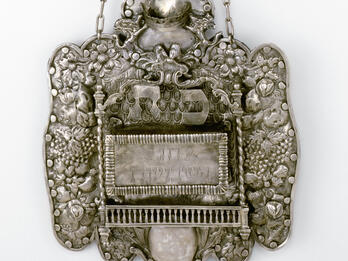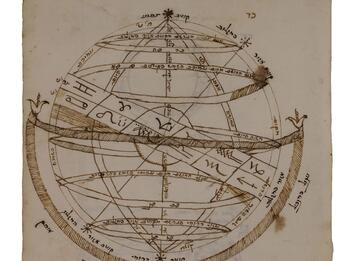Dissertaciones sobre el Mesías (Dissertations on the Messiah)
One must not close one’s ears to the heretic, as the orthodox can easily open his eyes. For this reason, pressure and punishment should never be used against any religion. Debates are useful. But after arguing, every individual is free to believe and act according to his beliefs, not according to what, by precept, he is ordered to believe. As for libertines and followers of Spinoza who have no religion, all religions should punish them. This plague does not thrive on ignorance, but on malice; they are enemies of God, and very harmful to the republic.
But force must not be used against those who fear God and religion, even after heated debate. The use of force can never persuade. Whoever has power, whether they are right or not, will want to use it. If all peoples think they have the obligation to enforce their opinions, all of them will set up inquisitions and appoint executioners. The charity and love for our neighbors mandated for everyone will be replaced by retribution, wars, and chaos.
In order to know if the punishment is just, it is necessary to ascertain whether God requires this punishment to be carried out, and then examine whether such a punishment is proportional to the end desired. The use of force to alter understanding can never cleanse people of error or persuade them of holy truths. God does not command such a thing. Indeed, rather than being a corrective, it reinforces the harmful doctrines of those in error.
Free and open discussions, in which those of any religion may speak without fear of oppression or punishment, are necessary, and these discussions must not be limited to a day, a month, or a year, but rather for as long as it takes to eradicate concerns and doubts. If this were done (it will not be), truth could prevail, but if they do not wish to hear, there is no point in speaking. If this were done, and if at the end of the discussion some remain unconvinced, then let them act according to their conscience, for to abuse them with punishments at these critical times will create hypocrites, which is an offense to God, for such as these believe they offend him.
A good work, given that it is a truly good work, if detested by the reason and will of the one making it, though it please learned and orthodox men, is irrational and impossible to see as pleasing to God, who sees what is in one’s heart and knows that the one who did this good work believed it to be wrong, and did it in order to comply with the church, though believing it was offensive to God. A man who obeys a ruling and errs is not serving God as God commands and wishes to be served, but rather sins out of ignorance. God knows the punishment that he deserves, and will mete it out fairly, in accordance with his divine justice.
But if men, having made their case, cannot change his mind, they must acknowledge his free will. Even Spinoza, a deist, must be listened to in order to disabuse and convince him. This can easily be achieved by one who knows how to base the discussion on effective reasoning and sacred authority; prophecies of events that came to pass are a great proof, as they could not have been foretold by human beings. In my Book 3, Ch. 12, I talk about this.
But if this is not sufficient for these brutes, should they not admit any religion, then they must be punished by whatever religion is voted upon by all religions. I speak as a philosopher and theologian, not as a politician: I cannot overlook the great harm done by kingdoms that persecute people for matters of conscience. Consider, for example, the expulsion of the Moors and Jews from Spain and of the Reformed from France, and you will know the damage done in these kingdoms, as well as the good enjoyed by those who tolerate all religions and allow men to exercise the free will that God has given them.
Credits
Published in: The Posen Library of Jewish Culture and Civilization, vol. 5.





